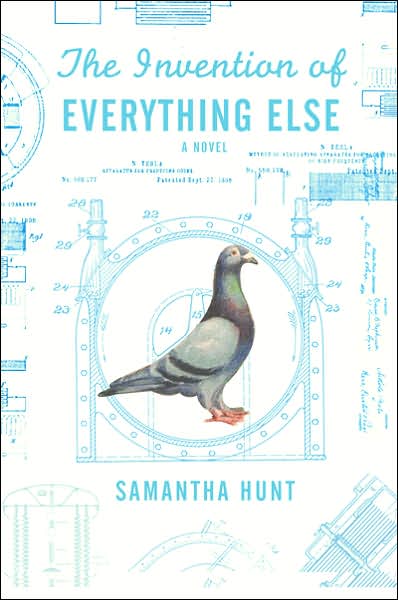The Invention of Everything Else
The Invention of Everything Else, by Samantha Hunt
LoTempio Law Blog Book Review
About the book
The Invention of Everything Else brings us back to the early 1940’s, when Nikola Tesla was living out his final years on this planet in room 3327 in the Hotel New Yorker. Tesla was arguably one of the greatest inventors of all time.
The story is set around a fictitious relationship between eighty-six-year-old Tesla and twenty-four-year-old Louisa, a chambermaid wh.jpg)
Louisa becomes obsessed with Tesla, his life and his inventions, and the two are drawn into a platonic friendship after discovering a mutual interest in homing pigeons.
Louisa is also a part of another sub-story involving her widowed father, a family friend who claims to have invented a time machine, and a mysterious young man who may have come from the future.
Tesla is touted as the father of the radio, wireless communication, X-ray, AC motor, and a host of other real and improbable innovations.
The book is a historical fiction and reports on his acrimonious relationship with Thomas Edison, his failed business ventures with George Westinghouse and his ability talk to pigeons.
My review of the book
I like the book because it includes a detailed account of the life of Tesla, his genius, his phobias, and of his course inventions. I often tell inventors “a good idea does not sell itself,” it is not like a lottery ticket.. you win millions because you got the winning number. Tesla is proof of that. Although he made money he died penniless. As smart as he was, he never figured out how to commercialize his inventions.
The book takes us into his life, his thoughts, his “science fiction” inventions, his friendship with Mark Twain, and his belief that he could photograph thought.
The writing style is eclectic, and the story is sometimes hard to follow. He has conversations with the pigeons and the deceased Mark Twain so you have to open your mind to believe that impossible is possible.
The story goes in all different directions, but the vivid descriptions of the architecture, social structure and the way of life in early twentieth century New York City make for fun and fascinating reading.
By the end of the book you really admire, like and feel sorry for Nikola Tesla and wish his inventions would all come true. I wish there was someone that was trustworthy and business savvy that could of handled his finances and acted as his agent. If money wasn’t an issue, maybe the world today would be a much different place because he invented everything else.
Here is my favorite excerpt from the book:
“The new device that does everything. It is a possibility device that does every last thing that you could ever conceive of, if time were not finite, if there were no end of invention, no end to living or at least no end to Nikola Tesla. The invention of everything else.”
What are some of the things you would invent:
- picture telephone
- magnetic surgery
- wireless printing press
- teleportation
- perpetual motion
- immortality
I alone know best that the world will be lost without you once you are gone.
About the Author
The author, Samantha Hunt, received a National Book Foundation award for authors under 35, for her previous novel, The Seas. The Invention of Everything Else was shortlisted for an award from Believer magazine and shortlisted for the Orange Prize.


